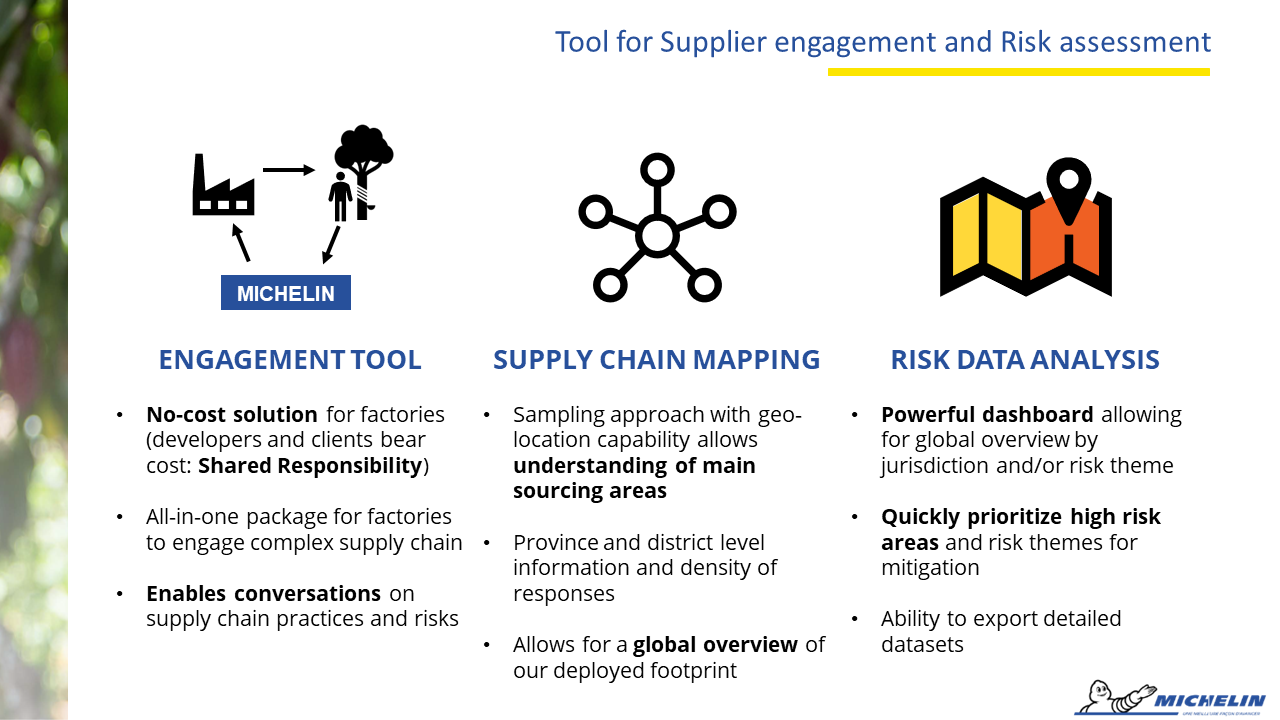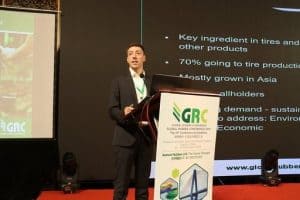By Nicole Tan, Project Manager, RubberWay
A couple of months ago, RubberWay was proud to introduce its contributions to sustainable natural rubber to members of GPSNR.
Data obtained through RubberWay contributes to helping users meet the GPSNR Reporting Requirements. A crosswalk analysis done by the RubberWay team showed that it provides 89% coverage of the 37 GPSNR Policy Components, of which 18 Policy Components are directly satisfied by RubberWay while 15 are partially contributed to.

RubberWay meets 33 out of 37 GPSNR Policy Components through direct and indirect contributions.
The webinar hosted by GPSNR gave RubberWay the chance to provide an overview of its solution from the perspective of both tire makers and processors.
The sharing by tire makers highlighted the motivations for their participation in RubberWay and the ways in which RubberWay’s results have enabled them to engage in efforts on the ground.
Similarly, natural rubber processors are able to apply data from RubberWay to implement field actions while also using the tool as a channel to facilitate communication directly with smallholders.

Users are able to utilise data generated through RubberWay to inform risk mitigation measures. RubberWay also provides its users with a channel for supplier engagement.
More detailed information on how RubberWay contributes to achieving GPSNR’s goals for sustainable natural rubber can be found in the RubberWay white paper. Access to the complete crosswalk analysis is also available upon request.
ABOUT RUBBERWAY
RubberWay is a digital risk mapping solution that helps upstream actors to detect environmental and social risks across the natural rubber supply chain. Risk data obtained through RubberWay generates actionable insights for users like tire makers and processors to drive change towards sustainability within the industry.
With over 50,000 questionnaires completed to date, the RubberWay dataset is set to increase with growing participation of users, enabling expansive reporting of sustainability risks across sourcing countries globally.
Find out more about RubberWay here.





